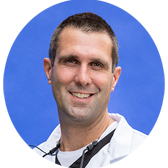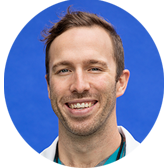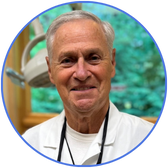Oral and Maxillofacial Surgery is one of the nine dental specialties recognized by the American Dental Association. An oral and maxillofacial surgeon treats a wide spectrum of diseases, injuries and defects of the face, jaws, head, neck and soft tissues of the maxillofacial region (face and jaw).
Oral and maxillofacial surgeons are surgically trained in an American Dental Association (ADA) accredited hospital residency program for a minimum of four years. They train alongside medical residents in general surgery, anesthesiology, and internal medicine. These surgeons also spend time working in the emergency medicine, plastic surgery, otolaryngology (ear, nose and throat), and other specialty areas. Once their training and residency are completed these surgeons are uniquely qualified to diagnose and treat any functional or aesthetic condition involving the hard and soft tissues of the face, mouth and jaws.
Jaw surgery
A maxillofacial surgeon could be called upon to diagnose jaw problems and to perform corrective jaw surgery, repositioning the upper jaw, lower jaw or chin. A misalignment of the jaws and teeth can create problems with chewing, eating, speaking and breathing. Excessive wear on the teeth, sleep apnea or a protruding or receding chin are all signs the individual may need to enlist the help of the maxillofacial surgeon.
Impacted Wisdom Teeth
Wisdom teeth are the last teeth to develop. Sometimes these teeth come in just fine; other times they fail to break through the gum and become impacted. Other times, the tooth can partially come or even fully come through but remain impacted. When a wisdom tooth is impacted it can cause pain and swelling. Those that have come through the gum are highly susceptible to decay, infection and gum disease. In any of the situations, the impacted tooth needs to be removed.
Cleft Palate
A cleft lip or palate results from the mouth and nasal cavity failing to grow together properly during the development of the fetus. This results in a gap in the lip or split in the roof of the mouth, which causes problems with feeding, speech and hearing. A cleft lip or palate must be treated with surgery.
Oral and maxillofacial surgeons are part of the team of health care specialists that correct cleft lips and palates through a series of treatments and surgical procedures.
Treatment of Facial Trauma
Traumas to the mouth, face and jaw are all considered maxillofacial injuries. An example of such an injury is when the bones of the face are broken. These fractures can involve the palate, cheekbones, eye sockets, lower jaw, upper jaw or any combination of these. Injuries such as these can affect sight, the ability to breath, to speak or to swallow. The oral and maxillofacial surgeon is the medical specialist called upon to treat such traumas.
Avoiding injury is naturally always best. Wear a seat belt when driving or as a passenger in car, and wear the appropriate protective gear when participating in athletic endeavors at any level.
TMJ Surgery
The temporomandibular joint (TMJ) is a small joint located in front of the ear where the skull and lower jaw meet and allows the lower jaw to move and function.
Jaw pain, earaches, headaches, a limited ability to open or close your mouth, clicking or popping sounds when you open or close your mouth are all indications you may have a problem with your temporomandibular joint.
Treatment for TMJ problems range from conservative dental and medical care to highly complex surgery performed by a oral and maxillofacial surgeon. If your TMJ treatment has not been successful or if you clearly have joint damage, a surgical approach may be indicated.
Diagnosing Oral Cancer
On your next visit to the dentist, ask them to do an examination for oral cancer. Meanwhile, if you notice white or red patches in your mouth, a lump you have not noticed before, or have a chronic sore throat or hoarseness, difficulty chewing or swallowing, see your doctor or oral and maxillofacial surgeon.
If there is any question of the possibility of cancer, the surgeon can perform a biopsy to accurately diagnose the problem.
Dental Implants
Dental implants are frequently recommended as replacements for missing teeth. During the implant procedure, an oral and maxillofacial surgeon will place titanium posts into exact locations in the jawbone.
The titanium fuses with the bone helping to create replacement teeth that never decay and never slip out of place.
Dental Anesthesia
During their residency, oral and maxillofacial surgeons complete high-level training in medical anesthesiology. Here, they learn to competently evaluate patients for anesthesia, deliver anesthetic, and monitor patients throughout surgery and after.
Oral and Maxillofacial Surgery
Contact our dental office and make an appointment. We are here to help.
Excellent care every time! Dr Mackay and his entire staff is knowledgeable, kind, patient, and trustworthy. Highly recommend.
Dr. Lieberman and the staff at Essex family dental are top notch. They all went above and beyond to make my experience as pain free and relaxing as possible while holding the highest level of professionalism.









